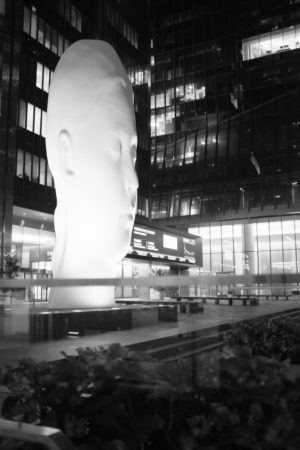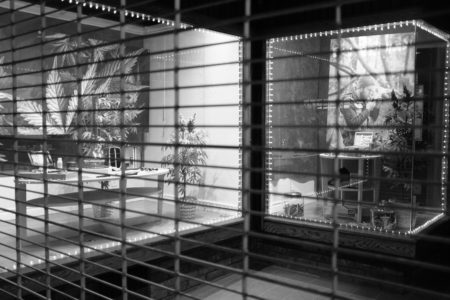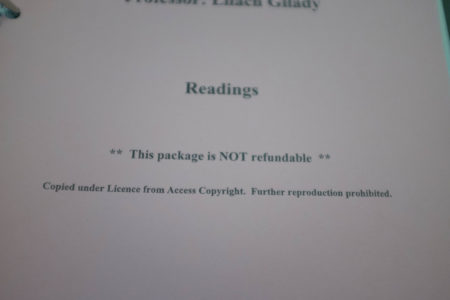Author: Milan
Toronto’s growth industry
Coffee shop porcelain
Forgone fossil fuels
Back in 2012, Justin Trudeau said that “there’s not a country in the world that would find 170 billion barrels of oil under the ground and leave them there.”
At an event in June organized by Bank of America, Saudi Energy Minister Prince Abdulaziz bin Salman supposedly said: “We are still going to be the last man standing, and every molecule of hydrocarbon will come out.”
Since avoiding catastrophic climate change is chiefly a problem of prompt global fossil fuel abolition, such sentiments are positively frightening. Trudeau’s cynicism may not be entirely justified, however, as there are examples of government choosing not to develop fossil energy, either out of innate concern about climate change or because they expect such industries to be in decline as the world decarbonizes.
For example, Greenland has banned oil exploration and Quebec’s government rejected a $14 billion LNG export project.
A few examples don’t make a trend, and enormous investments in fossil fuels continue to be made. At the same time, every noble example provides a case that can be raised with politicians who say action is impossible or that nobody will do it. If countries like Canada which have become rich on a high-carbon trajectory and which maintain excessively high per capita emissions continue to refuse to decarbonize we perpetuate a global suicide pact in which we all end up with ruin because each jurisdiction scrambled to pull in as much fossil cash as possible beforehand.
COVID cafeteria
Drying Buff
On the flight deck
Will Trudeau gamble on a 2021 election?
For weeks, the press has been full of reports about a potential election, with the Trudeau Liberals potentially hoping to replace the 147 seat minority which he won in the 2019 election with another majority like in 2015.
Speculation has reached the point that a prominent potential Liberal candidate has told the media that he won’t be running this time because of other commitments.
There is a common view that the ongoing implosion of the Green Party may be part of the rationale for going to the polls.
Presumably, Trudeau’s team at the Prime Minister’s Office has encouraging interal voter models, since they have allowed widespread speculation on an election and encouraged it with the traditional statements that the current Parliament isn’t working. Nonetheless, it may be a risky prospect. A Nanos poll found that only 26% of Canadians want an election. Furthermore, there is good cause to worry about another big new wave of COVID cases as protective restrictions are scaled back, people change their behaviour, and variants continue to spread within populations around the world where far too many people have refused vaccinations in the places where they are available. That could leave the government punished on both sides, first from those who support strong public health policies and feel let down by the government’s willingness to contain the pandemic, and also from the mega-libertarian crowd who have hated the precautions which have been taken and will rage if they are reimposed.
From a climate change perspective, it’s hard to know what to hope for. The Liberal government’s climate change policies have been deeply inadequate and sometimes counterproductive (insisting that fossil fuel development can continue, building long-lived infrastructure to that effect, refusing to set targets that are within the time period where the government will be accountable and which are compatible with a 1.5–2.0 ˚C limit and Canada’s fair share). The Conservatives would clearly be worse, as a central part of their pitch is dismantling the carbon pricing system which has been the Liberals’ main contribution with some notion of wooly support for technological development, The NDP and Greens might theoretically be better but (a) they can’t win given first-past-the-post and the preferences of Canadians and (b) it’s not clear their climate change policies would be better. The NDP has been perhaps the most inconsistent party, torn both by anti-environmentalist union sentiment and the party’s hope of replacing the Liberals on the centre-left, making them chiefly critics of that party. The Greens have far too little support to plausibly form a government, and tend to be riven anyway by campaigns to posture for moral purity. Ironically — at a time when people are opening up to the idea that climate change is the defining challenge of our time — the focus of the Greens is elsewhere.
Perhaps the best outcome would be an election that produces little change: a similar seat count, another Liberal minority, and a continued need to cooperate with other parties to stay in power. There is a case that a majority would let them act more boldly on climate, but I would say there is a stronger case that having to maintain support from other parties pushes them to do more than their status quo backers in the finance and resource industries would prefer.
Related:
- Justin Trudeau’s depressing perspective on the oil sands
- ‘Shut down the oil sands’ is not an extreme position
- Trudeau and Suzuki
- Open thread: Trudeau on climate
- Contemplating the Climate Welcome
- Climate Welcome photos
- Is the Leap Manifesto at risk of easy reversal?
- Trudeau’s carbon pricing plan
- Climate leaders don’t build pipelines
- Canada is still in denial about climate and the bitumen sands
- The climate case against Trans Mountain
- Canada’s message to the world
- On the cusp of the next Trans Mountain decision
- Open thread: 2019 federal election
- Trudeau’s false radicalism
- Net zero climate targets
- A 2021 Canadian federal election?
- Planting trees won’t solve climate change
- Canada and a just transition off fossil fuels
- Canada submits new 2030 climate target
Applicable to grad school generally
Wet bulb temperatures and human death
The many human impacts of climate change are complex and often indirect, like how warmer winters in the mountains affect downstream agriculture. The most direct possible effects — however — have been on display in the brutal heat waves on the west coast, as well as elsewhere in the world.
CNN recently published an editorial by Ban Ki-moon and Patrick Verkooijen on the most direct imaginable way in which increased global temperatures can bring harm upon people:
Sweltering temperatures have become the norm in Jacobabad, a town of around 200,000 inhabitants in Pakistan’s Indus Valley that has become one of the hottest places on earth. Temperatures can top 126 degrees Fahrenheit and air conditioning is scarce, leaving the streets deserted and forcing farmers to till their fields at night.
The city, along with Ras Al Khaimah in the United Arab Emirates, has temporarily crossed the threshold beyond which the human body cannot sweat enough to cool itself down. A “wet bulb” temperature of 35 degrees Celsius (95 degrees Fahrenheit) — which factors both heat and relative humidity — can be fatal after a few hours, even assuming ideal conditions such as unlimited drinking water, inactivity or shade. In practice, the bar for this wet bulb temperature, which is measured by covering a thermometer with a wet cloth, is much lower — as shown by the deadly heat waves in Europe in 2003 that are estimated to have claimed 70,000 lives.
Our most basic biological function and a prerequisite and definition of life is the ability to maintain stable conditions inside the body compatible with the needs of our physiology and biochemistry; homeostasis is the term for maintaining internal conditions, and if you don’t have it you’re literally dead.
We’re already artificially coping with places which are literally unliveable without air conditioning, from scorching cities around the Persian Gulf to Phoenix and Las Vegas, which are also profoundly threatened by the loss of winter snowpack and lost river volume and reliability.







